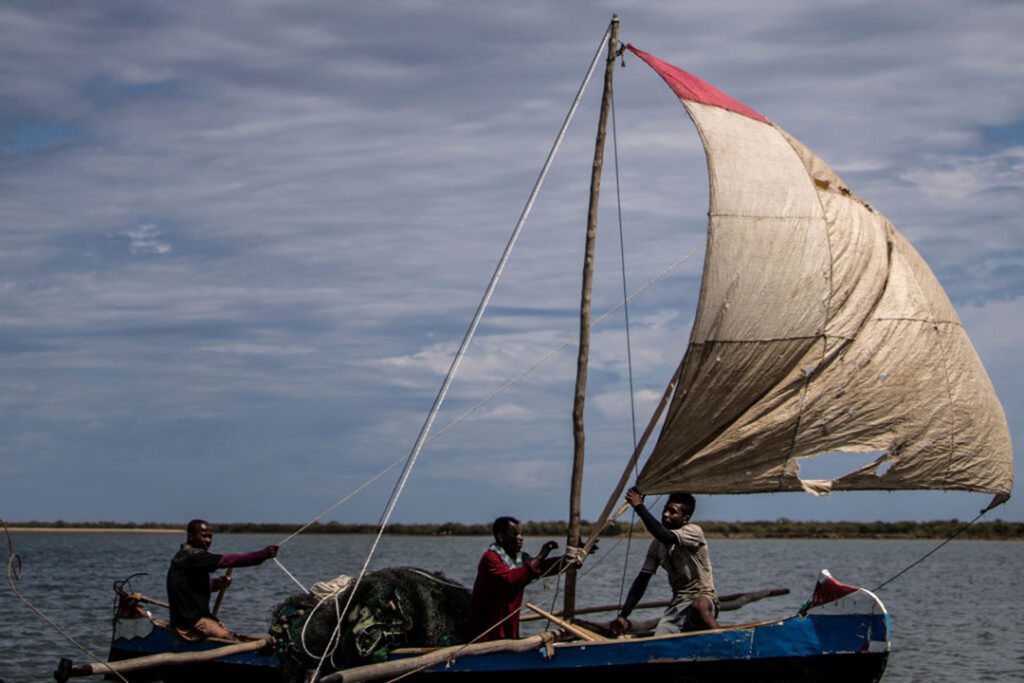ADF STAFF
A Chinese fishing company with a five-year right to fish for shrimp in Madagascar has kept its boats idle this year as they do not have licenses to trawl.
The company, Mada Fishery, has a dubious history. Three of its eight boats in Madagascar previously were caught violating fishing laws in West Africa, according to the Environmental Justice Foundation (EJF).
“As recently as November 4, 2020, the vessels were intercepted by the Gambian Navy, Gambian Department of Fisheries and Sea Shepherd,” Steve Trent, chief executive officer of EJF, told Mongabay. “The trawlers were found to have been fishing inside protected waters reserved exclusively for small-scale fishers in Gambia.”
Two of the trawlers, the Gorde 105 and Gorde 107, also were double-bagging their nets — another offense under Gambian law, Trent said. The third trawler is called the Gorde 106. The Gorde 108, currently in Madagascar, also has a history of violating fishing regulations.
Under Malagasy law, vessels with a history of illegal fishing should not be allowed to fish in the island’s waters, unless there is proof of a change of ownership. It is not clear whether that has happened.
An EJF investigation found that the identification numbers and company names were invalid for four of the vessels in the Chinese vessel registration certificates, and their vessel codes appear to be incorrect.
The EJF applauded the decision by Paubert Mahatante, Madagascar’s minister of fisheries and the blue economy, not to license the vessels.
“Along with putting in place key transparency measures, refusing fishing licenses to vessels with a history of illegal fishing is crucial to protect our ocean,” Trent said on the EJF’s website. “The threat that these operators pose to our ocean ecosystems and coastal communities cannot be overstated and it is time for governments to take action to protect their marine life and the food security of their people.”
If the vessels’ ownership has changed, then the vessels may be granted licenses.
“That could be the case if they respect the existing laws and regulations,” Mahatante told Mongabay. “According to the Malagasy laws and regulations, we can issue license as long as they comply with our laws. They can apply for fishing licenses as they hold fishing rights they bought.”
Mahatante was appointed in 2021. Weeks later, Madagascar joined the Fisheries Transparency Initiative (FiTI), which works to improve fisheries through increased transparency.
This year, Malagasy fisheries surveillance will further be aided by the European-funded Ecofish program, which will provide a patrol ship.

